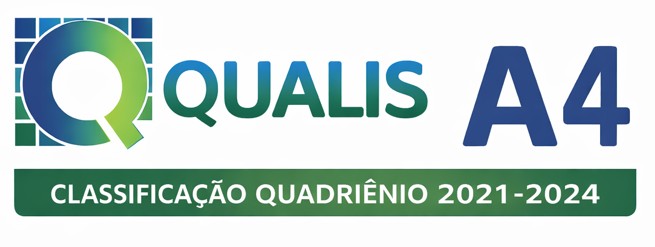Ceilândia minha quebrada é maior que o mundo: práticas pedagógicas para a valorização da cultura local por meio da atribuição de sentido
Palavras-chave:
Educação patrimonial, inventário participativo, Teatro do Oprimido, Práticas pedagógicasResumo
O presente artigo aborda as pesquisas e propostas pedagógicas desenvolvidas para a criação do livro “Ceilândia minha quebrada é maior que o mundo‟ em parceria com a Secretaria de Educação do Distrito Federal e o Instituto de Patrimônio Histórico e Artístico Nacional - IPHAN. Objetiva-se com esse relato apontar as práticas pedagógicas na perspectiva do protagonismo juvenil, do Teatro do Oprimido e do Inventário Participativo do Patrimônio Cultural utilizadas na construção coletiva do livro. As atividades foram realizadas com estudantes do 9º ano do ensino fundamental do CEF 27 de Ceilândia-DF. A análise etnográfica e a pesquisa ação constituem as bases metodológicas da pesquisa. Essa experiência evidenciou a importância de abordar em sala de aula práticas pedagógicas que prezem pela autonomia dos estudantes e integrem ao cotidiano dos mesmos as manifestações artísticas da cultura local. As reflexões aqui instigadas possibilitam outras percepções sobre a cidade, território, interdisciplinaridade, democratização dos espaços e a importância do lugar de fala ao se contar uma história.
Palavras-chave: Educação Patrimonia. Inventários Participativos. Teatro do Oprimido. Práticas pedagógicas. Educação. Território.
Ceilândia, my quebrada, is bigger than the world: pedagogical practices for valuing local culture through the attribution of meaning
Abstract: This article addresses the research and pedagogical proposals developed for the creation of the book “Ceilândia my quebrada is bigger than the world‟ in partnership with the Federal District Education Department and the National Historical and Artistic Heritage Institute - IPHAN. The aim of this report is to point out the pedagogical practices from the perspective of youth protagonism, the Theater of the Oppressed and the Participatory Inventory of Cultural Heritage used in the collective construction of the book. The activities were carried out with students from the 9th year of elementary school at CEF 27 in Ceilândia-DF. Ethnographic analysis and action research constitute the methodological bases of the research. This experience highlighted the importance of addressing pedagogical practices in the classroom that value the autonomy of students and integrate the artistic manifestations of local culture into their daily lives. The reflections instigated here enable other perceptions about the city, territory, interdisciplinarity, democratization of spaces and the importance of the place of speech when telling a story.
Keywords: Heritage Education. Participatory Inventories. Theater of the Oppressed. Pedagogical practices. Education. Territory.










